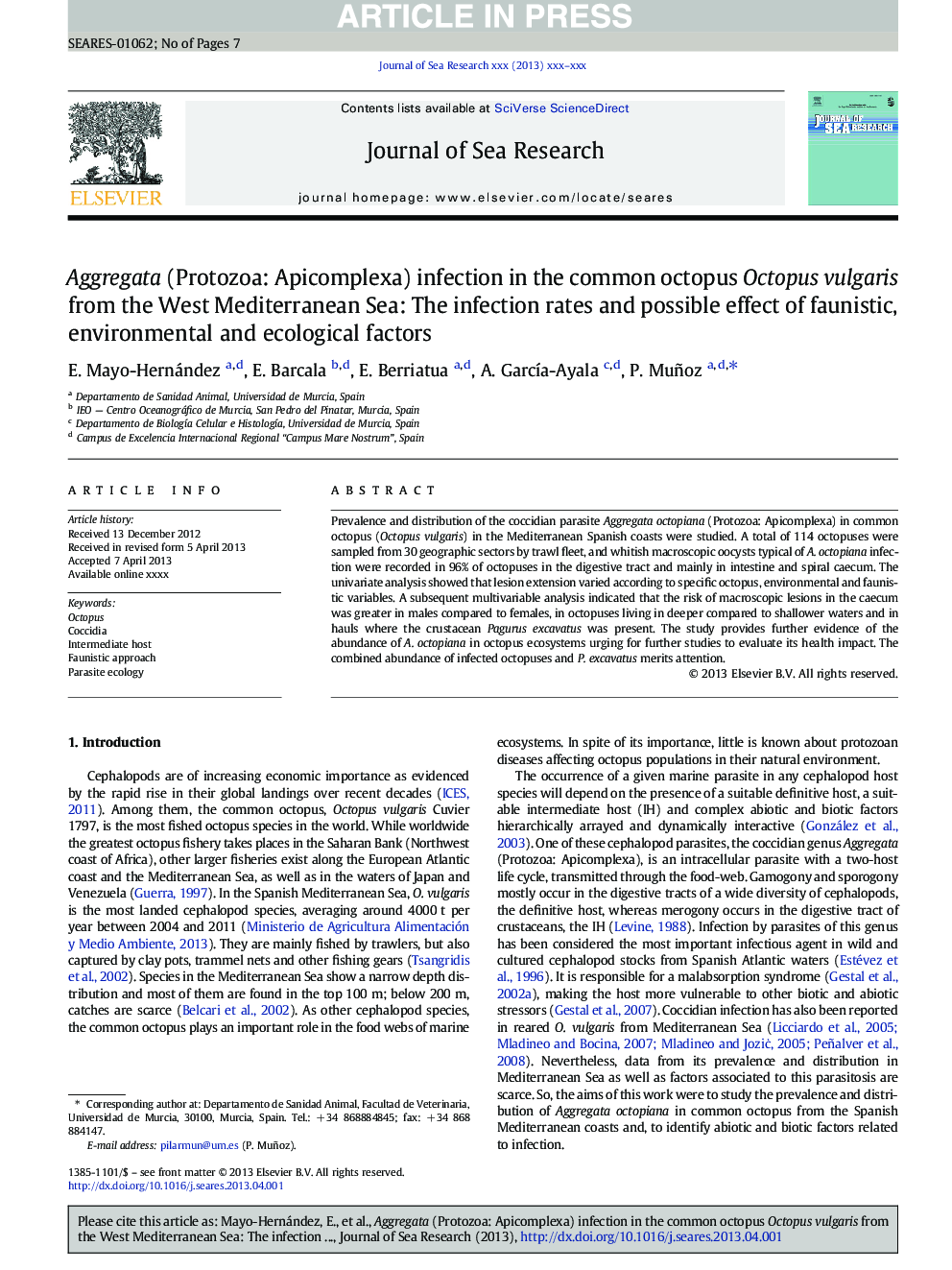| Article ID | Journal | Published Year | Pages | File Type |
|---|---|---|---|---|
| 6387490 | Journal of Sea Research | 2013 | 7 Pages |
Abstract
Prevalence and distribution of the coccidian parasite Aggregata octopiana (Protozoa: Apicomplexa) in common octopus (Octopus vulgaris) in the Mediterranean Spanish coasts were studied. A total of 114 octopuses were sampled from 30 geographic sectors by trawl fleet, and whitish macroscopic oocysts typical of A. octopiana infection were recorded in 96% of octopuses in the digestive tract and mainly in intestine and spiral caecum. The univariate analysis showed that lesion extension varied according to specific octopus, environmental and faunistic variables. A subsequent multivariable analysis indicated that the risk of macroscopic lesions in the caecum was greater in males compared to females, in octopuses living in deeper compared to shallower waters and in hauls where the crustacean Pagurus excavatus was present. The study provides further evidence of the abundance of A. octopiana in octopus ecosystems urging for further studies to evaluate its health impact. The combined abundance of infected octopuses and P. excavatus merits attention.
Related Topics
Physical Sciences and Engineering
Earth and Planetary Sciences
Oceanography
Authors
E. Mayo-Hernández, E. Barcala, E. Berriatua, A. GarcÃa-Ayala, P. Muñoz,
